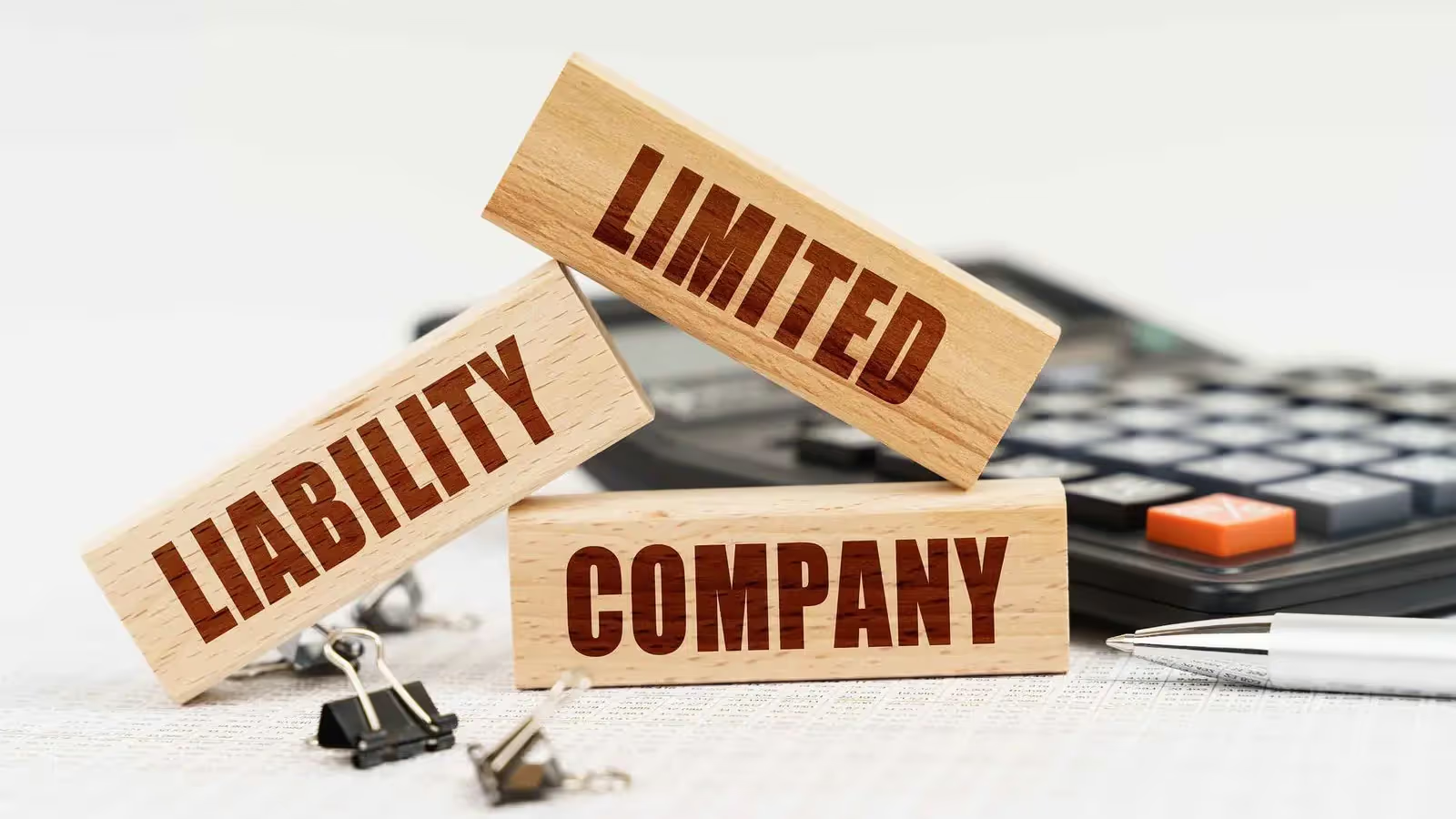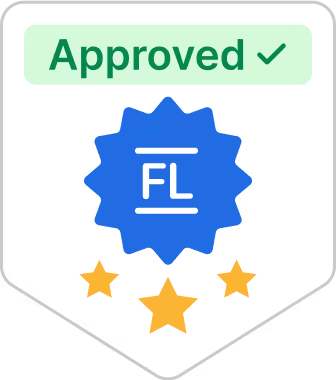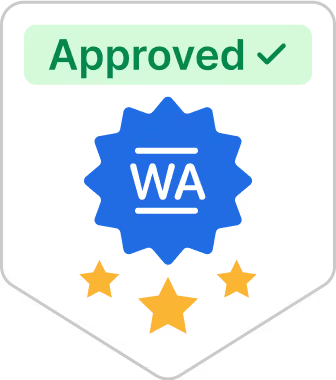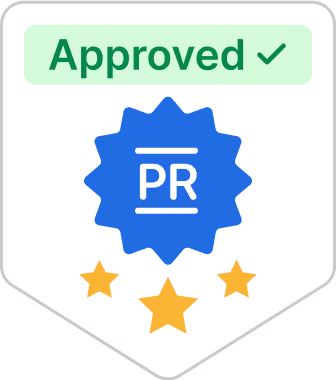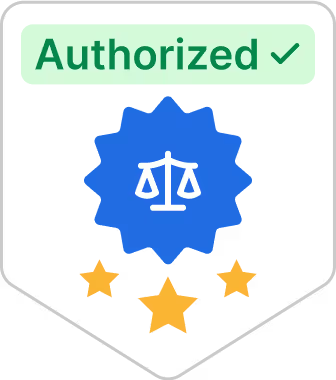How much does an LLC cost?

When you’re starting a small business, it’s important to keep fastidious records of everything—your budget and expenses should be at the top of that list, whether you run a Limited Liability Partnership (LLP) or Limited Liability Company (LLC). No cost is too small to note, from your business address’ rent to the pen you use to write your to-do lists.
Keeping a balanced and realistic budget helps your small business not only start strong but experience success and growth in the future.
Starting an LLC, or Limited Liability Company, helps protect these fast-growing assets. But how does starting an LLC factor into your small business startup costs? How much does an LLC cost, in the short and long-term? Read on to find out.
How to file for an LLC (and how much it costs)
Ready to enjoy the benefits of an LLC? To get started, here are our main tips on how to start an LLC, and the relative startup cost of each method:
- DIY method – Gather all materials and file them yourself. This is the cheapest method and should incur virtually no cost, other than your time. Depending on your familiarity with the process, you may be spending a lot of time meticulously preparing and perfecting each legal document.
- DIY & Registered Agent – Only slightly more expensive than doing it all yourself, a registered agent is an individual or corporation that offers a professional LLC formation service or registered agent service and helps you file. There are two main types, a commercial registered agent and a non commercial registered agent.
They receive all your paperwork, inform you of any missing pieces and state regulations, and act as the middleman between you and the state you’re filing in. Some states require registered agents to file, some don’t; you can also act as your own registered agent. Hiring a registered agent will cost you an annual fee of $100–$300 per year.
- Business Lawyer – This may be the right choice if you want to an LLC for a large business that needs more legal advice and has more complicated assets to protect. They will also help you draft your LLC operating agreement. However, hiring an attorney can cost you $1500 or more depending on how long you need their services.
- Online Incorporation Site – Some websites provide filing assistance for a small price. Online incorporation sites routinely charge between $99 and $900 dollars, depending on whether you use their assistance to create your LLC’s Employer Identification Number (EIN) or Tax ID and LLC’s bank account. For more on how to apply for EIN, visit us today.
Cost of filing by state
How much does it cost to start an LLC? That depends, in part, on what state you’re filing in. The method you choose for preparing your documents is only the first potential cost—the next is the state filing fee. Some states charge as low as $40 (thanks, Kentucky!) or as high as $500 (thanks for nothing, Massachusetts).
Here’s a quick, complete rundown of the LLC filing fee by state:
- Alabama – $200
- Alaska – $250
- Arizona – $50
- Arkansas – $45
- California – $70
- Colorado – $50
- Connecticut – $120
- Delaware – $90
- Florida – $125
- Georgia – $100
- Hawaii – $50
- Idaho – $100
- Illinois – $150
- Indiana – $95
- Iowa –$50
- Kansas – $160
- Kentucky – $40
- Louisiana – $100
- Maine – $175
- Maryland – $100
- Massachusetts – $500
- Michigan – $50
- Minnesota – $155
- Mississippi – $50
- Missouri – $50
- Montana– $70
- Nebraska –$105
- Nevada – $75
- New Hampshire –$100
- New Jersey – $125
- New Mexico – $50
- New York – $200
- North Carolina – $125
- North Dakota – $135
- Ohio – $99
- Oklahoma – $100
- Oregon – $100
- Pennsylvania – $125
- Rhode Island – $150
- South Carolina – $110
- South Dakota – $150
- Tennessee – $300
- Texas – $300
- Utah – $70
- Vermont –$125
- Virginia – $100
- Washington – $200
- West Virginia – $100
- Wisconsin – $130
- Wyoming – $100
Phew! Got all that? Once you find the state you’re filing in, you’re ready to incorporate that filing cost into your initial budget. Keep in mind that some states have slightly higher or lower filing fees depending on whether you file online or by mail.
Yearly maintenance fees
Furthermore, yearly maintenance fees vary for this type of business structure as well. Some states charge the same as the original LLC filing fee, some charge more, and some charge nothing at all!
See to it that your LLC is in good standing by making sure you’re paying your yearly maintenance and legal fees on time and to the right place. If you chose to hire a registered agent, they’ll be able to help you out with that.
Filing in a different state
An LLC business owner may consider filing their business license in a different state than the one they operate out of. Why? Wouldn’t that just create more confusion and complication? Maybe a tad, but because the price of filing varies so much, you can save money on initial filing costs by starting your LLC somewhere other than your business’s home state. Delaware, Kentucky, and Wyoming are common choices for out-of-state filing.
However, filing in a different state is not a great long-term solution. You may save a small amount filing out of state, but this simple act automatically deems your LLC a “foreign LLC” in your home state.
As a result, you’ll end up paying double the maintenance fees, filing double the paperwork, and enduring double the headache. Unless your organization spans across a few states and you are choosing the cheapest option, filing in your home state is the best practice.
Apply online
Filing fees, paperwork, tax season, oh my! Starting and maintaining an LLC to support your small business can be overwhelming at first. Avoid missing vital steps and enduring long-drawn-out automated calls with some government entity or another, simplify the process and apply for an LLC online now.
Sources:
- Score. Should You Hire a Registered Agent or Be Your Own? https://www.score.org/resource/should-you-hire-registered-agent-or-be-your-own
- How to Start an LLC. What is an LLC? https://howtostartanllc.com/what-is-an-llc
- Starting Your Business. How Much Does it Cost to Form an LLC? https://startingyourbusiness.com/how-much-does-it-cost-to-form-an-llc-fees-by-state/
- Small Business. How Much Does it Cost to Form an LLC? https://smallbusiness.chron.com/llc-vs-subchapter-s-construction-company-80829.html







